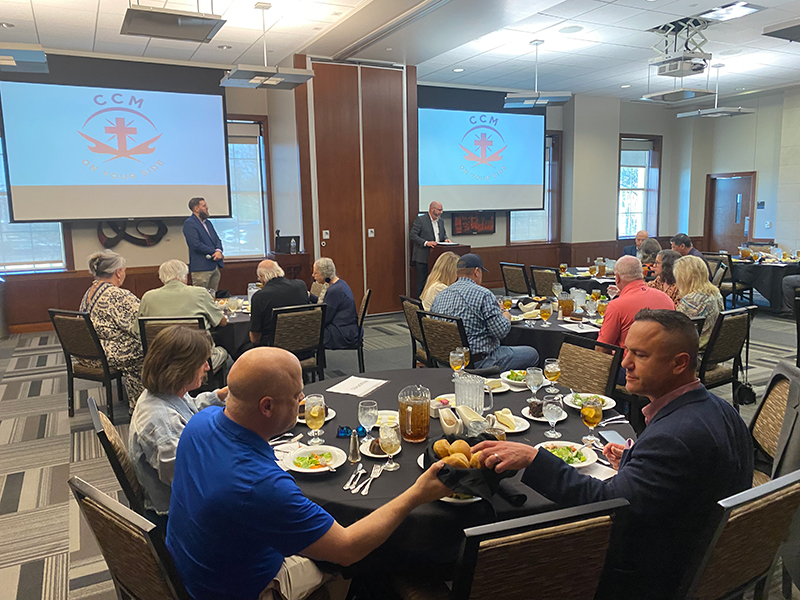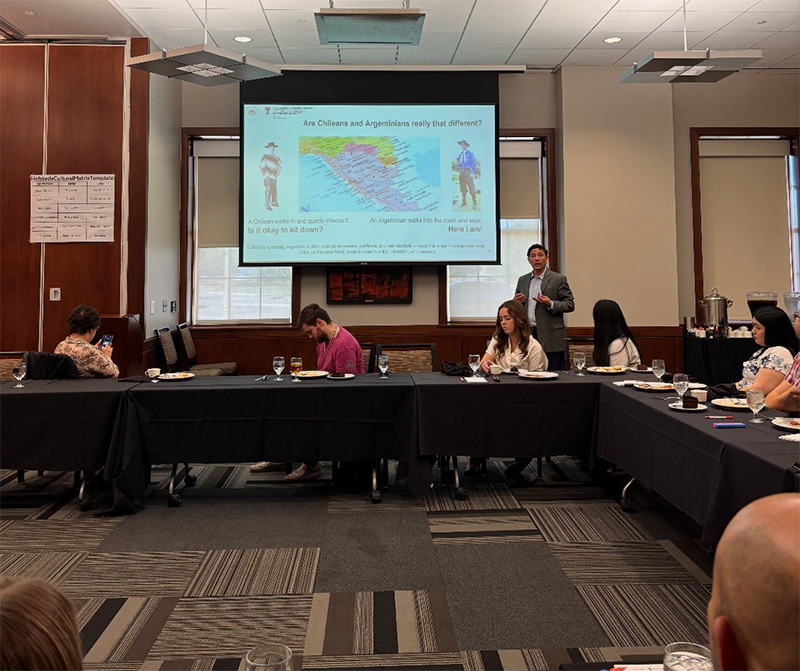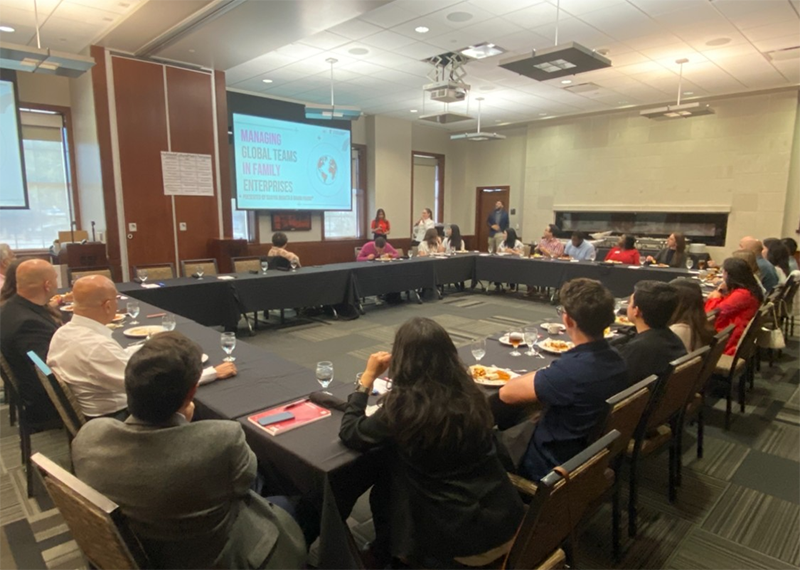As part of its mission to educate and empower future business leaders, the Alderson & Griffin Center for Family Business & Entrepreneurship (the Alderson & Griffin Center) hosted two impactful events this past spring that explored the personal values and cultural dynamics at the heart of family-owned businesses.
Faith-Based Family Businesses Panel

Former Rawls College management professor Ritch L. Sorenson, Ph.D., led a panel discussion on faith-based family businesses, in association with Crossfire Christian Ministries. At this panel, the center welcomed approximately 40 guests who shared how their spiritual beliefs influence business ethics, leadership, and company culture. The event emphasized that integrity, service, and faith can guide effective business decisions and build trust both internally and externally.
Ben Pickett, Ph.D., executive director/founder of Crossfire Christian Ministries and adjunct professor at Lubbock Christian University, talked about the importance of supporting family businesses amid cultural change. He saw the event as an opportunity to align shared values and inspire future collaboration. From a Christian perspective, he emphasized that providing resources to help families thrive is both impactful and a welcomed blessing.
Students engaged in a thoughtful discussion about how faith influences hiring practices, long-term planning, and customer relationships. They left with a deeper understanding of how belief systems can shape resilient, value-driven organizations.
Key Takeaways from Faith-Based Family Businesses Panel
- Faith-based values can positively influence leadership styles and decision-making
- Authenticity in business builds community trust
- Integrating beliefs into operations enhances long-term resilience

Claudio Muller, Ph.D., of the Rawls College Area of Management, led the next panel on intercultural perspectives. The event included around 30 attendees with deep-cultural roots from across 26 countries. This global conversation explored how culture influences business operations in family-owned enterprises. Speakers from diverse backgrounds discussed how values such as collectivism, respect for elders, and tradition shape leadership and succession planning.
Emily Dhurandhar, Ph.D., director of Research Special Projects for the Office of Research and Innovation at Texas Tech Health Sciences Center and partner in her family business, says cultural differences play a key role in international business.
“Gaining a deep understanding of cultural differences is essential for effective global business—because as was powerfully stated, ‘you can’t do business in a culture you do not understand,’” she said. “Engaging students with real-world international family business experiences fosters this awareness and prepares them to thrive in a globalized economy.”
The panel showed how cultural understanding is essential for effective communication, team cohesion, and long-term sustainability, especially in today’s interconnected economy. Participants encouraged students to think globally and recognize how inclusive practices can drive innovation.
Key Takeaways from Intercultural Perspectives Panel

- Cultural intelligence enhances organizational effectiveness
- Inclusive leadership styles strengthen family business adaptability
- Embracing a welcoming culture of belonging fosters innovation and sustainability
Through these events, the Alderson & Griffin Center demonstrates its dedication to creating meaningful learning experiences. By exploring topics like faith and culture in family businesses, the center helps students become more thoughtful, ethical, and inclusive leaders. Most importantly, it’s giving them real-world experiences and insights they can use in their careers and communities.
About the Alderson & Griffin Center for Family Business & Entrepreneurship
The Alderson & Griffin Center plays a critical role at the Rawls College by providing hands-on learning, thought-provoking discussions, and leadership development opportunities for students interested in family business and entrepreneurship. These networking events support the center’s mission by offering direct engagement with professionals who exemplify ethical and purpose-driven leadership. Through thoughtful dialogue and student interaction, the center fosters a learning environment that prepares the next generation of business leaders to thrive in diverse and value-rich environments.
